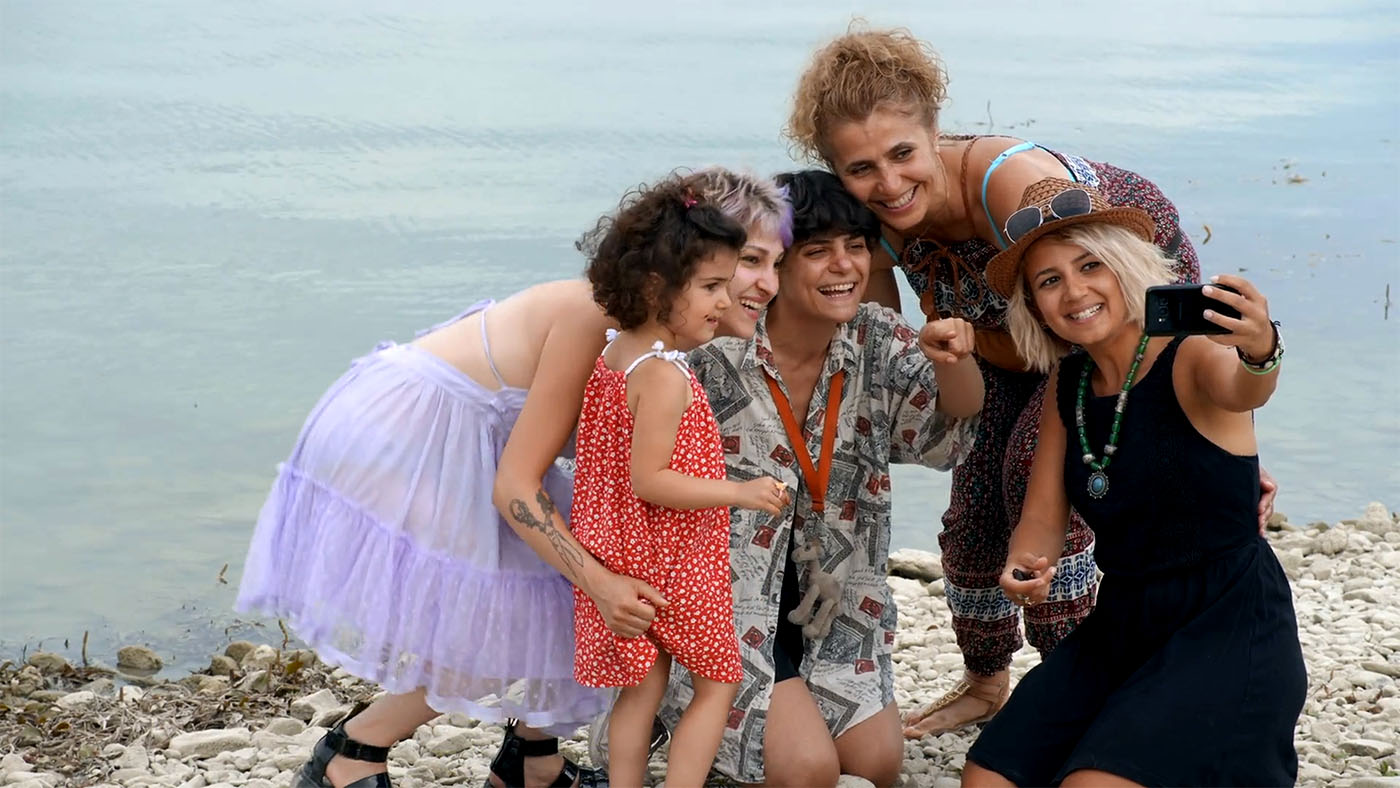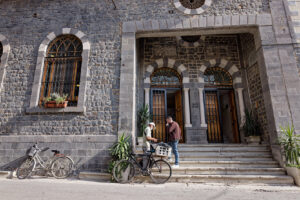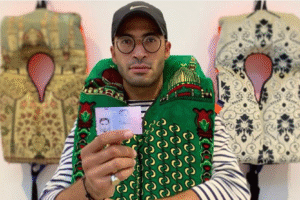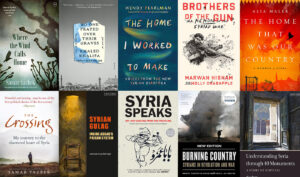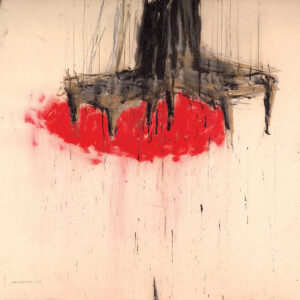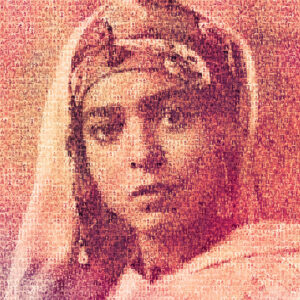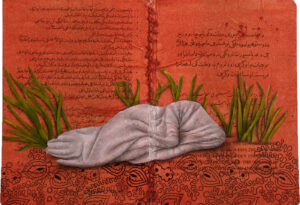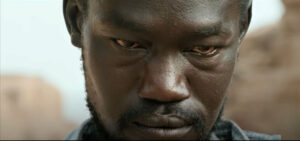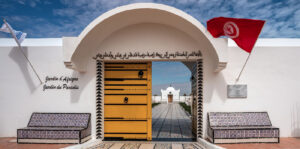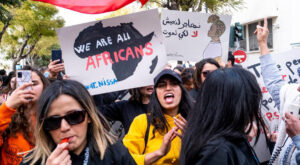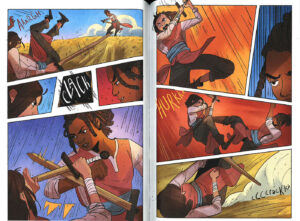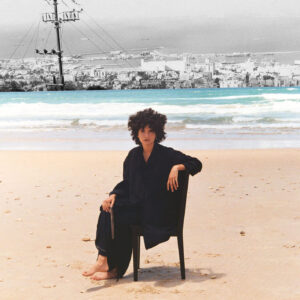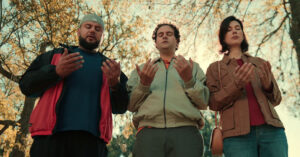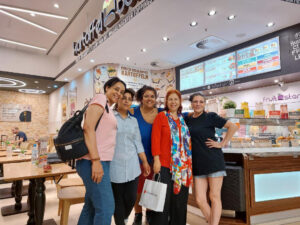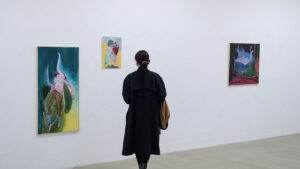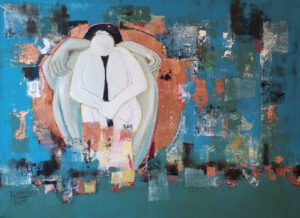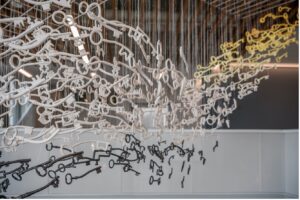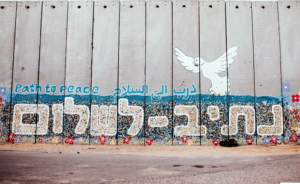A student of English literature in Aleppo finds herself drawn at first to the theatre, and then with the advent of the Syrian civil uprising and her unexpected arrest, destiny pushes her in the direction of filmmaking. A conversation with the director of All Roads Lead to More.
Dima Hamdan
As a young girl, Afraa Batous would dream of traveling around the world, influenced by the images she saw on TV and the glamorous lives of American pop stars. But her first foray out of Syria wouldn’t take place before 2012, when she would be forced to flee war and incarceration.
In 2018, Batous decided to embark on a road trip across four European countries — Germany, Switzerland, Italy and Greece — with three women, all refugees. It was their first time traveling freely, with no checkpoints or officials demanding to see their passports. The trip became a moment of catharsis, as old traumas rose to the surface, mixed in with nostalgia for a homeland that seemed unlikely to return to what it used to be, forcing the three of them to reconcile with a sense of loss.
Batous’s documentary All Roads Lead to More, which premiered in this year’s Munich Documentary Film Festival addresses all these issues.
DIMA HAMDAN: Why did you decide to go into filmmaking? Did it have to do with your departure from Syria?
AFRAA BATOUS: I was born in Aleppo in 1986 to a family of six siblings. I always dreamt of traveling, but I came from a working-class family for whom this was not an affordable luxury. It wasn’t easy for me to travel because I was a woman, and because my Syrian passport didn’t allow me to travel freely.
Before the war, I dreamt of studying theatre or filmmaking abroad. But I got distracted from that dream because the revolution started and I took part in peaceful demonstrations. In 2012, I was arrested and incarcerated for 26 days. When I was released, I began to think seriously about leaving the country because I no longer felt safe. I was afraid that I would be sent back to prison at any moment. Travel was no longer a dream or a luxury, it became a matter of urgency.
I ended up in Beirut and lived there for four years. I would have to leave the country every six months and return. During that time, I put aside the idea of studying and decided to go ahead and make films. My first project was called Skin, a feature documentary about the turbulence within a theatre group that I and two of my friends experienced during the critical historical changes taking place in our country. That film took four years to make.
Eventually I left Lebanon for Germany. This was just over six years ago. In 2018, I got into Film University Babelsberg Konrad Wolf in Potsdam and started my MA in filmmaking. All Roads Lead to More was my graduation project.
TMR: Where did the idea for the film come from?
AFRAA BATOUS: The film is a mix between my childhood dreams and my actual travel experiences. It also stemmed from observing and recording the experiences of other Syrians who went through the asylum process.
Living in Beirut, a city that had itself experienced war, I met several Lebanese people who had returned home after years abroad and were disenchanted. I remember a taxi driver telling me he returned from Australia to rebuild his life in Beirut, only to realize that the place he had left 20 earlier no longer existed. I wanted to explore this idea of yearning for the place we leave behind, and what happens if we manage to return to it.
My protagonists — Rahaf, Sarah and Rawa — and I planned a trip to each of the countries that had been the point of entry into Europe for each one of us. The plan was to undertake this trip as soon as I received my German citizenship. But the more I thought about it, the more I realized that this was also something that I wanted to challenge. The world is already divided into people who have permission to travel freely, and those who don’t. So, I decided to try and travel with an asylum document.
When Covid happened and there was a lockdown, we still went anyway and our journey took a month and a half.
TMR: What I found refreshing in your film is that you refrain from explaining your background and culture to the Western audience. Also, your characters are far from being stereotypical: although Sarah is a single mother who has given birth alone and away from her family, you don’t waste time explaining that, or the fact that Rahaf lived most of her life in Italy, and yet is very much part of the story that you’re telling.
AFRAA BATOUS: Exactly. I wanted to avoid all stereotypes. There seems to be only one single narrative about the refugee experience; you either die at sea or you survive and thrive. However, it’s impossible for any two individuals to have the same identical experience. We each have a different story to tell.
I have yet to see women that I can relate to in any of the feature films being made about Syria. The stories we’ve seen in documentaries so far are very important, but I also know there are many Syrian women with whom I particularly identify whose stories haven’t been told.
Rahaf had been reluctant to appear in the film because her asylum journey was different from the others. She hadn’t experienced the war and so she didn’t think her story was relevant. But I wanted her to be in the film because she was engaged with the peaceful resistance movement and so her story definitely mattered. Rawa, on the other hand, has managed to transform her life completely since leaving Syria. She is now at a point where she has found inner peace and acceptance.
We all share a sense of loss and guilt. We feel guilty because we live in places where we can be happy to enjoy ourselves while knowing that people back home are still under threat of being killed. Despite that, we each have varied questions and opinions about what’s going on in Syria, and so I wanted to move away from a totalitarian way of thinking to exposing and discussing different perspectives. Otherwise, we would end up like the regime.
TMR: Tell me about those unpredictable moments when shooting a documentary. For example, in Greece, Sarah got excited over a small unremarkable street just because the asphalt on the ground reminded her of the streets back home, and it launched the three of you into tears.
AFRAA BATOUS: These are exactly the types of moments that one doesn’t predict happening when one sets off on a journey like ours. That day reminded me of all those nights in Beirut when we would go to bars and dance and laugh, then suddenly start to cry and sing songs from the revolution. We walked through many streets that reminded us of Aleppo and Damascus, and I think this idea of constantly looking for a new place to replace the one we had lost doesn’t make sense, and coming to terms with that is always difficult.
TMR: There is a scene in the film in which you sing a song from the days of the 2011 revolution, when suddenly you stop just before your voice changes pitch. Was that a metaphor for trying to find a new role or place for yourself?
AFRAA BATOUS: Exactly. It’s not just my voice that had changed, but the circumstances in which we used to sing those songs changed as well. Going through the revolution and spending my twenties asking critical questions about the war was difficult, but moving to Europe was the hardest thing. I always wanted to travel and study abroad, but when it finally happened, it turned out to be more complex than I imagined and it makes it harder for me to find my voice. It was also a metaphor for any person, not just a Syrian, who has experienced displacement. What do their voices sound like years after they have left? Finding a new voice is very important especially in exile where there is more than one cultural input in conflict within you.
TMR: Did this film change you?
AFRAA BATOUS: It changed me a lot. When I started working on it, I realized that I wanted to make a confrontational film. My intention from the beginning was to face the situation head on and question whether I would ever go back to Syria or integrate within this a new society. You know what they say, be careful of what you wish for!
It was a dangerous but also a brave decision to make, because it made me confront my traumatic experience. During the editing process, I asked myself many times why I had ever thought to make this film, but in the end it freed me. I feel lighter because of it.
TMR: What’s your life like now as a German citizen? Has anything changed?
AFRAA BATOUS: When I was told that I would be receiving a passport that was valid for 12 years, my first thought was that it was too much! I didn’t know if I was going to live that long!
It feels strange because coming here wasn’t exactly a choice. But I’m also tired of years of not being on solid ground and not knowing if I can stay in a place or if I have to leave it. I still have to get over my anxiety towards wars. Even now that I live in a peaceful place I keep thinking “what if?” When the war broke out in the Ukraine I began to wonder if I would have to move again. This time though, who knows, I may not want to move anywhere, even if a war does break out.
All Roads Lead to More is viewable via the ZDFMedia library.



